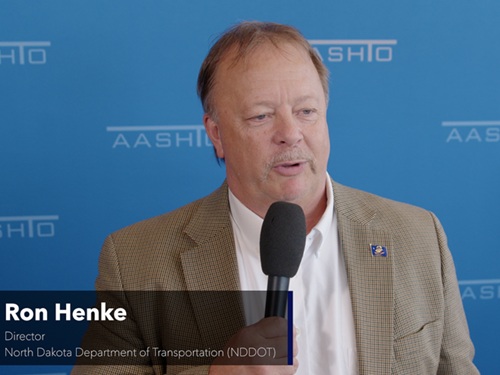The Governors Highway Safety Association and Responsibility.org recently awarded grants to five states – Connecticut, Illinois, Louisiana, Maryland and Nevada – to fund “proven and innovative countermeasures” to enhance the identification and treatment of alcohol- and drug-impaired drivers.
[Above photo by the Louisiana State Police]
Now in its eighth year, the GHSA and Responsibility.org grant program has provided nearly $1 million to states to address alcohol- and drug-impaired driving.

GHSA noted that police-reported alcohol-involved crashes increased during the last two years, rising 16 percent from 2019 to 2020 and a further 5 percent from 2020 to 2021, according to the National Highway Traffic Safety Administration.
However, the concern is that impairment in such crashes may be going unreported as police may not have the training to recognize drug impairment and some toxicology labs lack the equipment necessary to test for certain drugs.
Giving police officers tools to identify alcohol- and drug-impaired drivers and expanded testing are critical for protecting all roadway users is the genesis behind this grant award program, explained GHSA Executive Director Jonathan Adkins.

“Alcohol and drug use increased during the pandemic as people looked for ways to cope, and we know that many of these individuals are also getting behind the wheel,” he said in a statement.
“It’s tragic and incredibly frustrating to see impaired driving crashes – which are preventable – kill people every day,” Adkins added.
“We’re proud to continue our longstanding partnership with Responsibility.org to fund countermeasures to advance law enforcement detection, expand critical toxicology lab capabilities, and support the screening, assessment and treatment of impaired drivers,” he noted.
The specific programs funded by those five state grants include:
- The creation of “green labs.” Those “labs” give volunteers a controlled dose of cannabis – and in some cases a combination of cannabis and alcohol – in Maryland and Connecticut. Law enforcement officers will perform a series of sobriety tests with the volunteers to witness the impairing effects of these substances. This training will equip officers to better detect cannabis at the roadside, helping remove more impaired and dangerous drivers from roadways before they hurt or kill themselves or others.
- A first-of-its-kind on-call toxicology program that can be a model for other states.Louisiana will hire a forensic toxicologist who can provide expert analysis and court testimony on drug-impaired driving cases in areas of the state that currently have limited access or funding challenges.
- Equipment to expand the range of impairing drugs tested by toxicology labsin Illinois and Louisiana. Illinois will expand its ability to test drivers arrested for impairment by synthetic opioids, which are becoming more widespread across the state. Louisiana will purchase equipment that will allow their lab to test every impaired driving blood sample submitted for analysis for a wider array of drugs, including inhalants.
- Training case managers to screen and assess impaired driving offenders and judges to use the findings to make better sentencing decisions.Nevada will provide training to judges and case managers to use the groundbreaking Computerized Assessment Referral System or CARS. The tool can identify substance use disorders and an array of mental health issues, leading to personalized treatment recommendations and more individualized sentencing decisions for defendants, reducing their chances of reoffending.
All of these projects complement recommendations in the 2019 GHSA report on High-Risk Impaired Drivers, funded by Responsibility.org, which calls for an individualized approach to impaired driving and ultimately led to the creation of the National Alliance to Stop Impaired Driving, a coalition established and led by Responsibility.org to eliminate all forms of impaired driving.
 Nation
Nation
North Dakota DOT Profiled in State DOT Update
July 3, 2025 Nation
Nation

